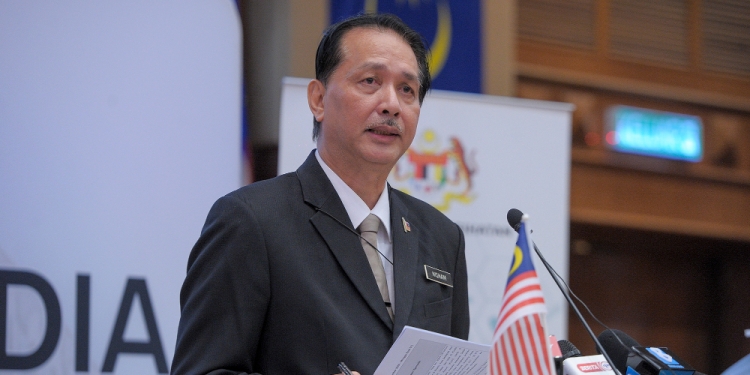Malaysia is seeing a surge of new COVID-19 infections with 10,089 new cases reported today. This is the highest recorded in four months, and the last time Malaysia recorded more than 10,000 daily cases was on the 2nd October 2021.
According to Health Director-General Dr Noor Hisham Abdullah, 99.24% (10,012 cases) of these cases are COVID-19 category 1 and 2 where infected individuals had no or light symptoms. Only 0.76% (77 cases) are classified as category 3, 4 5, which are considered severe.
Drp 10,089 kes harian dilaporkan pada hari ini;
— Noor Hisham Abdullah (@DGHisham) February 6, 2022
• 77 kes (0.76%) kategori 3, 4 & 5
• 10,012 kes (99.24%) kategori 1 & 2
Kategori 1 : 2,482 kes (24.6%)
Kategori 2 : 7,530 kes (74.64%)
Kategori 3 : 52 kes (0.51%)
Kategori 4 : 17 kes (0.17%)
Kategori 5 : 8 kes (0.08%) pic.twitter.com/Y7tDSwIf4W
Hospitalisation remains moderate despite high number of COVID-19 cases
Despite the high number of cases, hospitalisation due to COVID-19 remains moderate with 123 active cases in ICU and 67 requiring ventilators based on data from COVIDNow. As a comparison, Malaysia had 883 active COVID-19 cases in ICU and 480 cases on ventilators on 2nd October 2021. However, the number of new daily hospital admissions has increased above the 1,000 mark since 4th February 2022 after hovering around the 800-900 range since January. As of 29th January, Malaysia recorded a 7-day average of 11 deaths per day due to COVID-19.
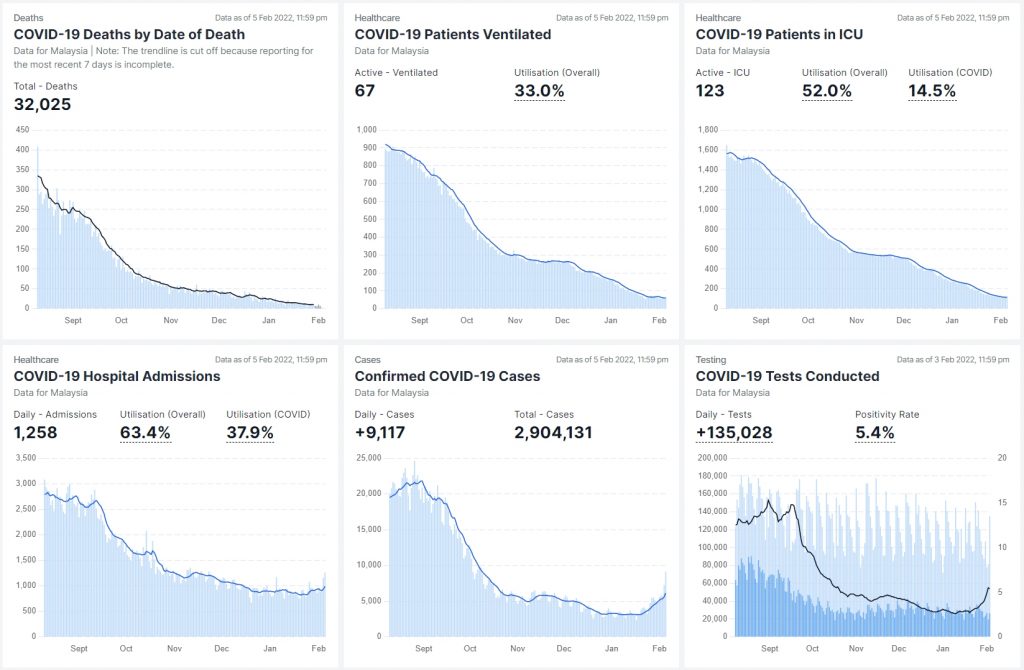
Dr Noor Hisham has also provided a breakdown of the new infections by state as listed below:
- Selangor – 2,549
- Johor – 1,582
- Sabah – 1,285
- Kedah – 904
- Pahang – 624
- Penang – 542
- Kuala Lumpur – 491
- Kelantan – 471
- Negeri Sembilan – 464
- Melaka – 457
- Perak – 321
- Terengganu – 213
- Putrajaya – 61
- Sarawak – 58
- Perlis – 44
- Labuan – 23
Over 22,000 cases in a day by end-March with current infectivity rate
As of 5th February, Malaysia has an infectivity rate of RT 1.20. Perlis has the highest at RT 1.49, followed by Sabah at RT 1.41, Putrajaya at RT 1.29, and Kedah at RT 1.22.
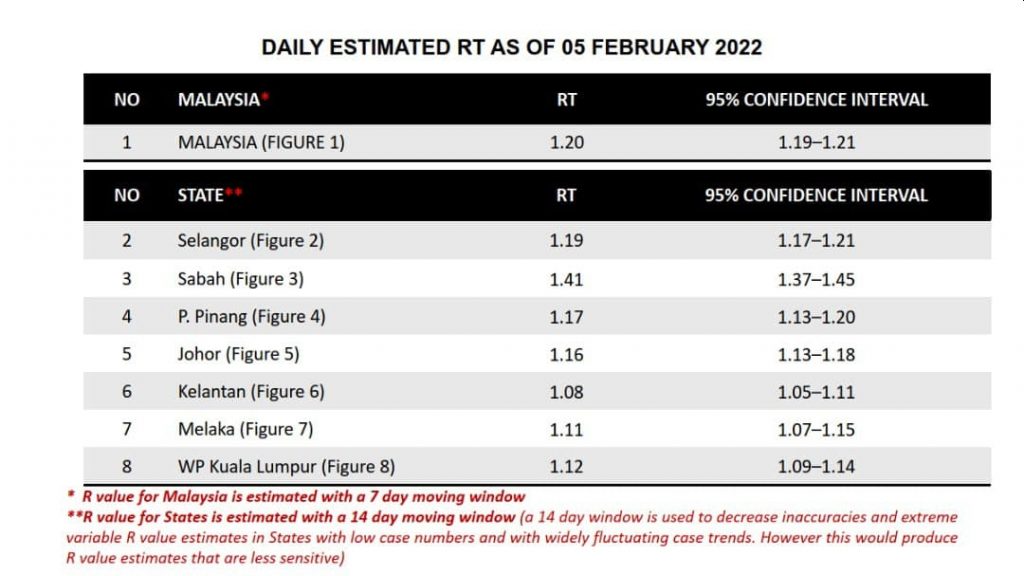
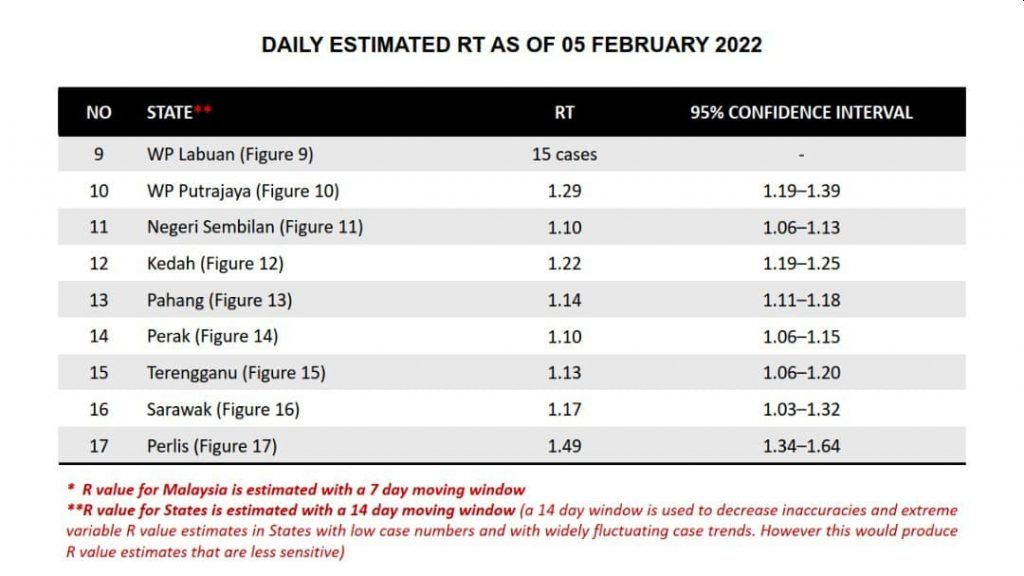
Malaysia could be recording more than 22,000 cases in a day by the end of March if the infectivity rate remains at RT 1.2. If the infectivity rate increases to 1.6, daily cases could go as high as 30,000 by the end of this month according to the forecast model as shown below:
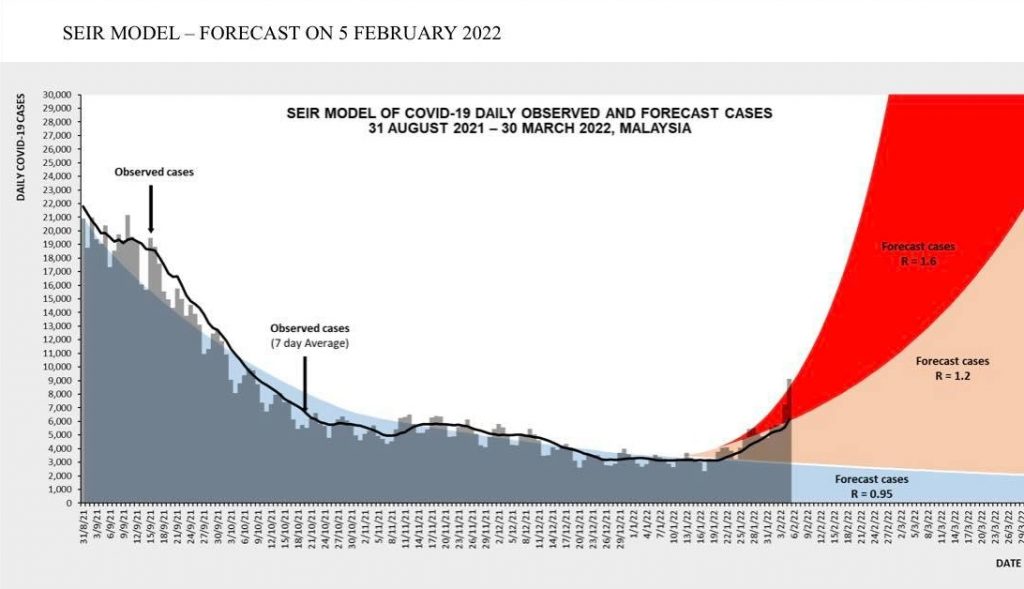
Remaining senior citizens urged to get COVID-19 booster vaccine
Health Minister Khairy Jamaluddin has revealed that 1 million senior citizens have yet to get their COVID-19 vaccine boosters and has urged them to do so as soon as possible. The public is urged to get their elderly folks soon to reduce the severity of COVID-19 if they get infected. All mass vaccination centres are now accepting walk-ins for COVID-19 boosters. Private clinics and healthcare facilities under ProtectHealth are also accepting walk-ins but you are urged to call-in to check on availability.
As highlighted by the Institute of Clinical Research, the risk of death due to COVID-19 for the unvaccinated is 61.7x higher than individuals who have received their boosters. The risk of getting infected with COVID-19 among the unvaccinated is 8.8x higher than those who have been boosted.
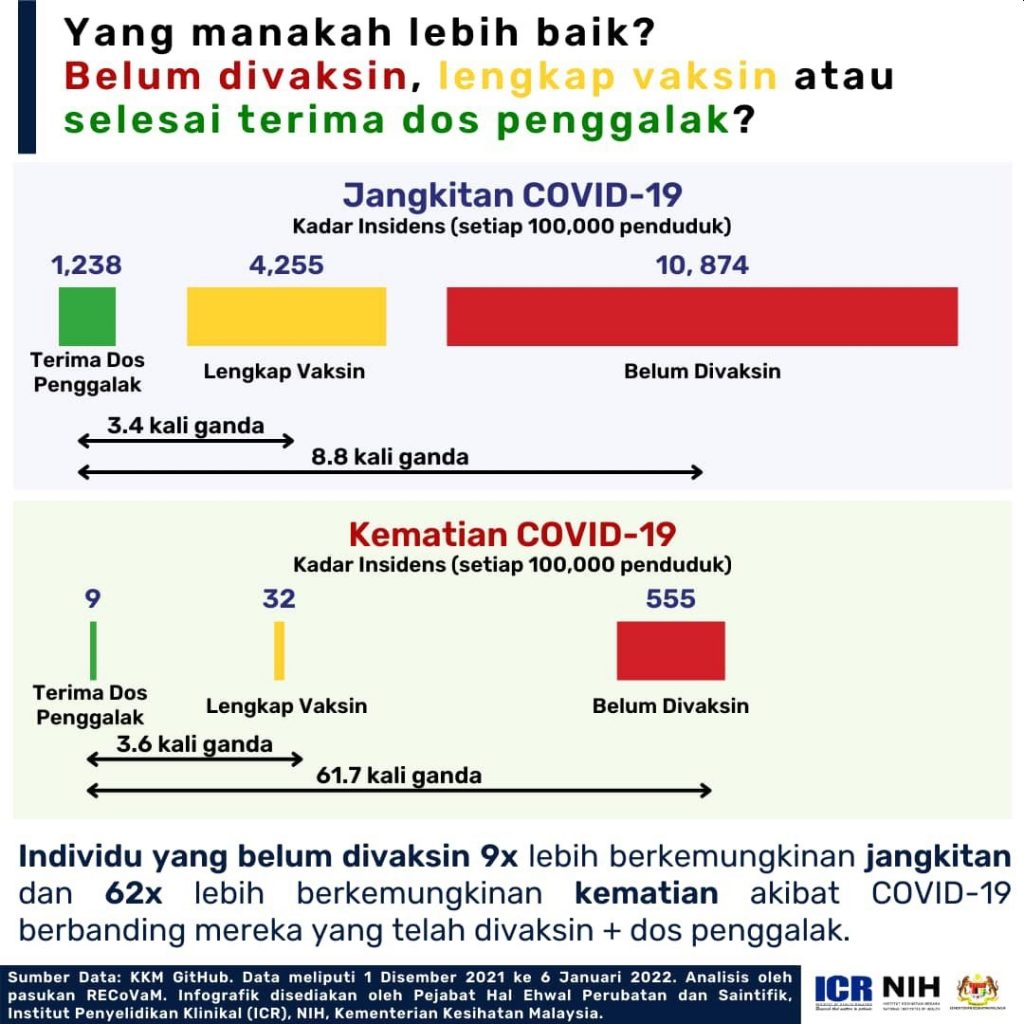
At the moment, Malaysia has fully vaccinated 97.9% of its adults (18 years old and above) and 52.6% of them have received their boosters. 88.7% of teens (12 to 17 years old) have been fully vaccinated and the current COVID-19 vaccination programme for children under 12 (PICKids) is ongoing. The Health Ministry aims to vaccinate 50% of children aged 5 to 11 with at least one dose by the end of this month.
Singapore and South Korea experiencing surge of new infections
The recent surge of cases is believed to be caused by the Omicron wave which is seen to be more transmissible than Delta. Singapore and South Korea have recently reported record-high new COVID-19 cases in a day. There are over 13,000 new cases reported in Singapore on Friday and over 30,000 new cases in South Korea on Saturday.
Khairy has said in January that Malaysia will not implement a total lockdown like it did in the last two years. He recently told the World Health Organisation (WHO) that extended lockdowns and border controls are no longer viable. During his speech in Geneva, he said “While the world is tired from the stop-start-stop-start dance we have all been doing, we should also not assume that letting Omicron rip will bring about an endgame and not leave in its wake much death and damage.”
“Malaysia has tried to respond in a calibrated and proportionate manner. We have implemented mitigation strategies to contain the pandemic while slowing down the impending Omicron wave without imposing harsh restrictions nor overwhelming our health care system,” he added.
[ SOURCE 2, IMAGE SOURCE ]

